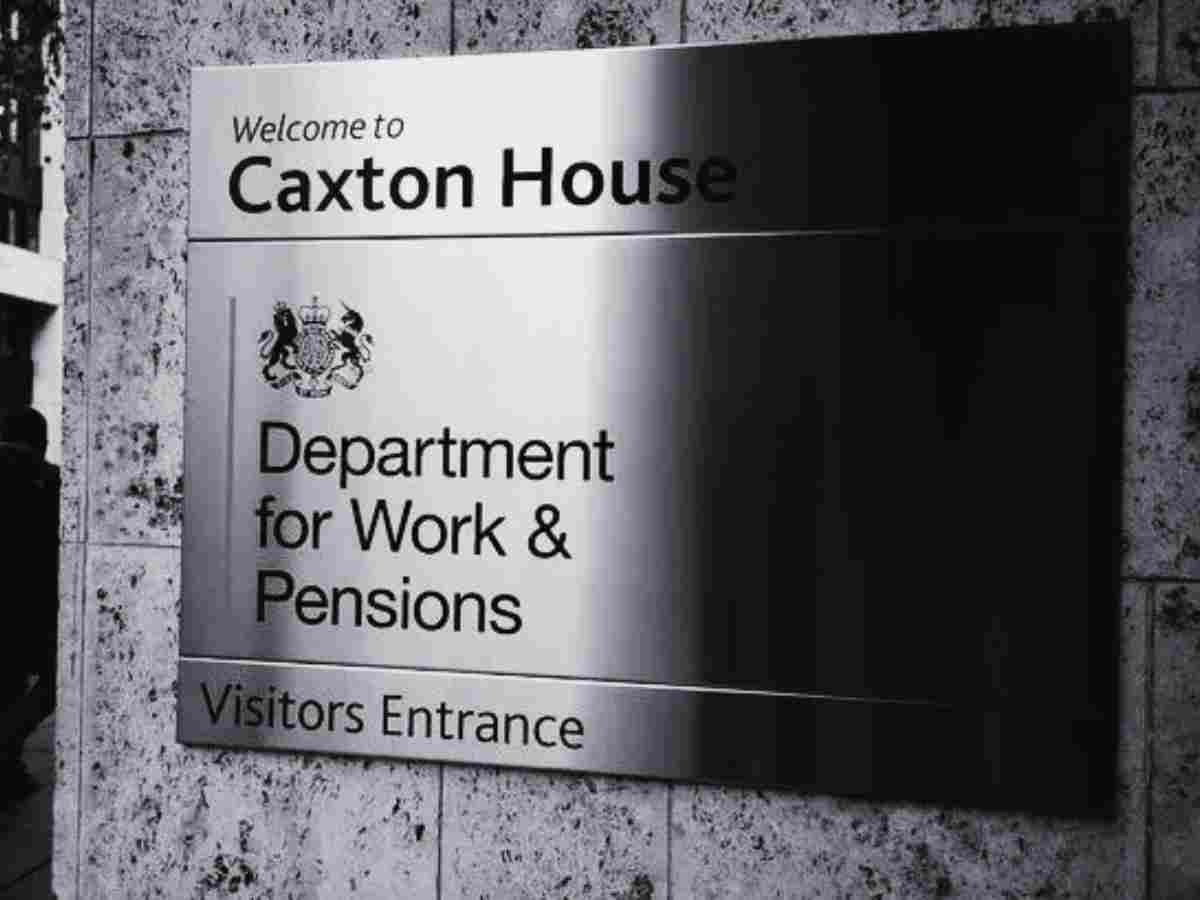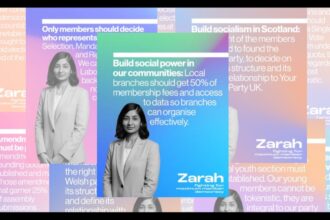The government has dropped its response to the Department for Work and Pensions (DWP) Pathways to Work consultation. Its responses reveal how chronically ill and disabled people are not buying the government’s case for its widespread welfare cuts.
More than this, however, respondents refused to let the DWP define the terms of its so-called reforms. The chronically ill and disabled community took it up as an opportunity to hit back at the government’s scapegoating narratives. In so doing, they exposed how the department’s key consultation is little more than a sham dressed up like listening to disabled people.
DWP Pathways to Work consultation: suddenly dropped out of nowhere
When the former DWP secretary Liz Kendall put forward the government’s flagship disability Green Paper, it included a suite of regressive reforms to make it harder for people to claim disability and health-based benefits.
As the Canary has previously highlighted, however, the Green Paper revealed that the government wasn’t planning to consult on many of its most oppressive plans. Of course, this included its intention to make sweeping cuts to Personal Independence Payment (PIP) and to the health element of Universal Credit. Obviously, concerted campaigning from disabled people forced a Labour rebellion that has put a halt to the government’s cruel plans around PIP eligibility for now. However, parliament still passed a Money bill with some of its more devastating changes to Universal Credit’s Limited Capability for Work Related Activity (LCWRA) component.
The paper also showed that the DWP would not consult on proposals to scrap the Work Capability Assessment (WCA). The Canary has consistently highlighted how aligning it with the PIP assessment could be catastrophic for chronically ill and disabled people.
As such, we should first set out why the consultation will likely be a major whitewash. The fact is, the DWP’s Pathways to Work consultation appears largely about going through the motions of appearing to listen to disabled people. In reality, the questions are leading and often act like the department has already made up its mind. These are decisions that it has also not consulted over.
Nevertheless, people made the most of the chance to tell the government what they really thought about its plans.
Disabled people made their voices heard, even if Labour won’t listen
The first thing to note about the consultation is that it drew an enormous number of responses. In total, 46,354 individuals, 511 charities, 372 ‘other organisations’, which included businesses, industry bodies, and local authorities, took part. There were also a further 746 participants who didn’t fall into any of the aforementioned categories, or otherwise confirm who they were representing.
What’s straight away good to see is that chronically ill and disabled people made their voices heard. Around 46% (21,535) of respondents identified as disabled, living with a health condition, or receiving PIP. About 39% (17,899) didn’t specify, with the remainder (8,549) not identifying as disabled/living with a health condition/getting PIP. So that’s nearly half of the participants identifying as disabled or chronically ill. Obviously, many who didn’t identify or provide this data to the DWP may also be disabled or live with chronic health conditions.
A large number of these came from two campaigns. 32,788 responses were derived from a single campaign platform alone.
Supporting people into work? Here we go again
The first question asked respondents:
What further steps could the DWP take to make sure the benefit system supports people to try work without the worry that it may affect their benefit entitlement?
Interestingly, only 8,090 participants actually engaged with this question. That might have something to do with the fact that it was an egregiously leading question amid its broader plank of plans to cut people’s entitlements.
The most common answer (20.5%) was that the DWP should offer “flexible support and benefit adjustment”. This appears to refer to the department facilitating “trial work periods” as well as tapering around earnings.
However, perhaps the more significant answer was how respondents felt the government needs to maintain financial support for disabled workers. Obviously, respondents undoubtedly meant benefits like PIP and Universal Credit (including LCWRA) in this. That is, the welfare support the government is ironically hell-bent on slashing. Alongside this, though, it seems likely the response also encompasses financial grant-type support, AKA schemes like Access to Work (AtW).
Once again, the DWP has been slyly making sweeping unofficial cuts to this as well. So the fact that this was more than 15% of responses – the second-highest theme, won’t show the government in a good light here. What’s more, later questions centred on what support the DWP should fund within AtW. The implication here, of course, is that it wants to reduce the level of support on offer.
The question (number 14) positively spins this by suggesting it’s about reaching “as many people as possible”. But the problem with this is that the DWP has been reducing awards, and it appears to be for those who need the most support. In other words, it just means it’s likely the scheme won’t actually continue to facilitate those with the greatest needs staying in work.
Employer accountability for disabled workers was also top of the list at 14% of responses. In other words, participants were highlighting that holding employers to account for ableism, workplace inaccessibility, and discrimination should be a top priority for this government. This is important because, as it stands, disabled people disproportionately face low pay and limited progression prospects where jobs do exist. And most notably, employers have made disgustingly few accessible job opportunities available.
Stop #TakingThePIP, we’re not having it
Another key question revolved around the DWP’s gruelling PIP cuts.
Notably, the publication picked this out before delving into the questions. This was because responses over PIP comprised such a considerable number. Obviously, this was significant given the consultation wasn’t actually consulting over whether to carry these out. It said:
During the course of the consultation, the government announced that it would not take forward the proposed changes to the eligibility criteria of PIP. Although this policy was not consulted on, many respondents raised it in their responses.
The consultation only asked questions about mitigating the impact of the cuts. This included:
What support do you think we could provide for those who will lose their Personal Independence Payment entitlement as a result of a new additional requirement to score at least 4 points on one daily living activity?
Unsurprisingly, disabled people called the government out over this right away. More people answered this question than any other, with 12,526 responses. And of those, more than half lambasted Labour’s plans to cut PIP eligibility. Crucially, 52% said the DWP should maintain the existing PIP criteria and “many” responses pointed to:
Financial (37%) and mental health impacts (18%) of losing PIP.
That 52% was the biggest response by a fair margin, too. Following that, 37.2% underscored how it would increase financial hardship, and more than a fifth said it would impact on their employment and independence. What’s notable here is that none of those answers actually responds to the DWP’s question. Instead, disabled respondents clearly took the opportunity to set out their opposition to the PIP cuts more specifically.
In refusing to be held to the DWP’s framing, they made patently clear that no ‘support’ could really account for the callous cuts to disabled people’s PIP entitlement.
The following question yielded many of the same results. This one asked:
How could we improve the experience of the health and care system for people who are claiming Personal Independence Payment who would lose entitlement?
Again, the largest number of responses at 42% (out of 8,411 this time) came back demanding the government maintain PIP for claimants. Half as many (19%) said the government should increase investment in the NHS. A further 17% wanted more mental health support. Obviously, these paled in comparison to the sheer number stating in no uncertain terms that the government should scrap its PIP cuts.
A big no to ‘Unemployment Insurance’
Another question pitched the concept of Unemployment Insurance (UI). As the Canary has previously highlighted, this seems to be part of the Labour government’s agenda to get rid of the new-style Employment and Support Allowance (ESA).
We noted before how the government’s consultation question on this approaches it as if it’s already a done deal. Notably, it asked:
How could we introduce a new Unemployment Insurance, how long should it last for and what support should be provided during this time to help people to adjust to changes in their lives and get back into work?
Translated: the question is posed as ‘how can we do this’, not whether it should. And lo and behold, respondents weren’t buying it either. In particular, the responses showed that:
Some respondents were sceptical about the introduction of UI because it was unnecessary or that further development was required (17%), including those who appeared unsure of what the proposals meant and the intention behind them.
That wariness is evidently warranted given it’s a vehicle to dismantle some disabled people’s vital contribution-based out-of-work benefits. Once more, respondents overwhelmingly called out a problematic feature of this. Specifically, this is the DWP’s intention to ‘time-limit’ the new benefit. More than a fifth said that the DWP should make it an indefinite benefit. Of course, this particular aspect is essentially the department’s raison d’etre behind the whole idea. It wants to replace new-style ESA with UI and make it a short-term benefit to – you guessed it – make cost-savings.
Support conversation: more bullshit and bluster from the DWP
There was plenty of bullshit around the DWP’s ‘support conversation’. This is effectively the main thing the department has been offering to replace disabled people’s PIP entitlement with.
It’s about as nonsense and honestly, gaslighting, as it sounds. The Green Paper explained how this would “focus on” disabled people’s “goals” and would:
Act as a gateway to a range of personalised support to help achieve them, for anyone who wants it. This support conversation will centre on employment, but in the context of someone’s wider health and independent living aspirations.
Because chronically ill and disabled people too ill to work just need to think themselves better and get coaching on how to do that.
A surprising number still responded to this – 7,082. Answers ranged from woolly notions of a DWP staff treating disabled people with “empathy, respect, and kindness” to the rather obvious suggestion that staff should understand various disabilities. One thing it did emphasise, though, is that DWP staff should also understand the nature of fluctuating conditions. Of course, the department has historically not been good on this.
In a later question, respondents shut down the DWP’s idea that these support conversations should be mandatory. Crucially, participants highlighted how conditioning Universal Credit (including the health element) on taking part in these could cause stress for claimants. A significant number followed this by suggesting people with severe disabilities or on LCWRA should be exempt, period.
The government says…
Participants also made perfectly clear to the government that it should centre support around need, not age. This was clear in the response to the DWP’s shocking proposal to limit Universal Credit’s health element to those over age 22.
Respondents had to spell out to the DWP that this would push young chronically ill and disabled people into poverty.
So overall, what was the government’s initial take on all this? The published response stated that:
The government is committed to reforming the social security system so that it can better support disabled people and those with health conditions.
During the course of the consultation, the government announced that it would not take forward the proposed changes to the eligibility criteria of PIP, and that it would await the findings of the Timms Review before taking further action in this area. Where relevant, the Review may draw on insights from this consultation to support its work.
Work continues to develop policy across the other measures set out in the Green Paper. As part of this work, we are working closely with disabled people, the organisations that represent them, and other experts, including through the Timms Review and our Collaboration Committees. We are now carefully considering the responses to the consultation alongside other evidence, and we will share details of our proposals in due course.
A whitewash all the way from the DWP
It’s almost exasperatingly hard to know where to start with this. For one, the government painting its current climbdown on the PIP cuts as its magnanimous gift to disabled people is nauseatingly galling. But we’ll park the fact that it was all really a last-minute exercise in saving face from what would otherwise have been a gargantuan government defeat.
What’s more, its claims to work with disabled people are more than a little hard to swallow. Just today, its much-trumpeted Timms Review is looking increasingly like the whitewash the Canary had warned it would be.
The Labour Party government, “carefully considering” these responses, will be little assurance to disabled people it has already shafted with calamitous cuts. While the responses dragged the DWP’s plans through the mud, there’s no guarantee it will take any of this on board. And frankly, it also isn’t mandatory to. If the pattern of this Labour government is anything to go by, it’s more likely it will co-opt it. In short, it will use it as a monumental token tick-box exercise. Will it engage in good faith with these responses? That remains to be seen – but at this point it seems far from the probable outcome.
Featured image via the Canary













